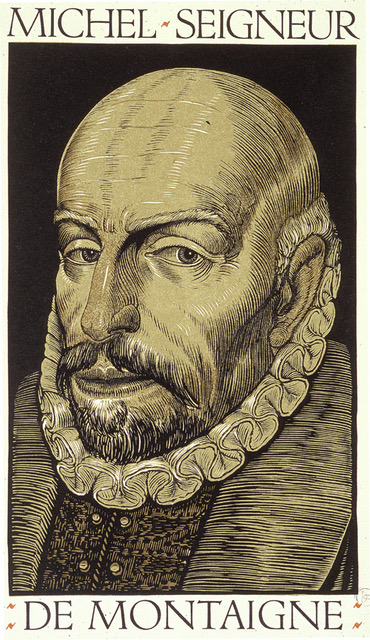 Like the Essays, our readings will be promiscuously curious, but we shall focus on two of Montaigne’s major concerns: the riddle of personal identity in its relation to the act of writing. As Montaigne gradually came to understand, both entailed the mediation of autruy, namely, us his readers, with whom he carries on an implicit dialogue. The result is an endlessly surprising work, now candid, now slyly ironical, which develops its ideas not logically but rhetorically, thanks to a prose that is by turns elliptical, metaphorical, satirical, erudite, insouciant, intimate, and paradoxical, but always vigorous.
Like the Essays, our readings will be promiscuously curious, but we shall focus on two of Montaigne’s major concerns: the riddle of personal identity in its relation to the act of writing. As Montaigne gradually came to understand, both entailed the mediation of autruy, namely, us his readers, with whom he carries on an implicit dialogue. The result is an endlessly surprising work, now candid, now slyly ironical, which develops its ideas not logically but rhetorically, thanks to a prose that is by turns elliptical, metaphorical, satirical, erudite, insouciant, intimate, and paradoxical, but always vigorous.
The work of the weekly reading group culminates in symposium with distinguished scholars on Friday, April 3, 2026. Details to follow.
Graduate students may receive up to four credit-hours of CTIH-T700 (independent study) for work linked to the reading group. Before signing up, interested students should contact one of the conveners to agree on a work plan.


